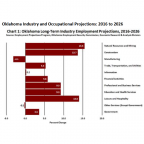Beating the Stereotype That Links Physical
Attractiveness to Corporate Success
The strong dynamics between an employee’s physical attractiveness and his success in the workplace is observable in many companies.
There’s a lot of research confirming this widespread social phenomenon. From the authoritative 1970 article in Psychonomic Science entitled “Role of physical attractiveness in impression formation” to the compelling Journal of Educational Psychology article, “Effects of children’s physical attractiveness on teachers’ evaluations”—the high premium placed on physical beauty lives and breathes not just in the workplace but in many social settings. It is seen in different cultures, as well.
For all job types, male attractiveness works its magic to a tee. For neutral and female-oriented jobs, female employees have an edge based solely on their looks.
Here are three remarkable examples culled from various journal articles that support the stereotype of physical attractiveness as a powerful career advantage:
- A large majority of voters vote for politicians based on the candidate’s looks alone.
- In a simulated trial, the judgment of a jury can be influenced by the physical attractiveness of the trial participants.
- Even if an applicant is being evaluated for a position that does not include exposure to other people, like a desk job that confines an employee to work alone inside a room, physical attractiveness still factors heavily in hiring decisions.
What’s interesting is that the rampant beauty-bias occurs unconsciously for some who are guilty of prejudging based on looks.
Is there any hope for people who do not meet society’s standards of beauty? Is there any way for an average-looking person to stay motivated in a workplace where image is everything?
Well, there is a way--sort of.
In most cases, societal standards of beauty can spell corporate success for an attractive person. Being unattractive also has its advantages in the workplace.
In Professor Comila Shahai-Dennin’s “Physical Attractiveness Bias in Hiring: What Is Beautiful Is Good,” she writes that when an attractive and an unattractive employee are both evaluated for their job performances, the unattractive employee gets sympathy for his failings. He is seen as a victim of circumstance. The attractive employee is then viewed as someone who does not put on too much effort—which explains the failings—and who mainly relies on his looks to succeed. This is true for all employee evaluations—regardless of the employee’s gender.
So, come review time, if you are not attractive-looking, then you are given more leniency for your shortcomings compared to your physically attractive counterpart.
When employees need to be disciplined for misbehavior, the physically attractive employee is viewed more harshly than the less attractive one. A negative sense of entitlement is almost always heaped on the more physically attractive employee.
Legal recourse for an employee being hired, terminated, and penalized based on looks can be a murky one. This is proven by the 2003 lawsuit involving the upscale retailer Abercrombie & Fitch; the role of physical attractiveness as a factor in employer decisions is difficult to pinpoint when placed in the legal context.
The social problem that makes beauty a marker of corporate success exacerbates image issues for both men and women alike. But it is a reality. Almost everyone is aware of it. And being aware of the existence of beauty-bias is the first step towards addressing it.
One thing is for certain: it will not hurt for an average-looking employee to properly groom himself, to dress smartly, and to act professionally in the workplace.
|









